Based on the theme of this year’s Centre for Postdigital Cultures (CPC) conference, the Post-Publishing research strand within the CPC have curated a selection of openly available publications from members of the Radical Open Access Collective (ROAC) and have brought these together as part of a virtual conference bookstand, which allows conference participants to access further readings around the themes that the conference addresses. This bookstand is based on the model used previously for the ROAC Virtual Book stand: https://radicaloa.postdigitalcultures.org/latest-publications/
In 2018, ScholarLed developed a collaborative bookstand to cross-promote the publications of the presses within the consortium, highlighting the ideals and values that sustain their projects: open access, not-for-profit and scholar-led publishing, experimentation, and an ethics of care. The aim of this bookstand (which has subsequently been adopted and adapted by the ROAC) is to advocate these forms of publishing within academic communities in order to showcase the existence of alternative models for open access publishing. ScholarLed and ROAC want to use this to make a public and political statement about how not-for-profit presses can start to collaborate through these kinds of projects.
Through this virtual bookstand we hope to offer an alternative to the promotion of publications at in-person events. Now that academic conferences are being increasingly held in a virtual or hybrid form, we have adapted the bookstand to function online, imagining a virtual book stand that enables the sharing of new publications with attendees across the globe. We’ve also taken care to include non-English language publications and publications from authors in the Global South to highlight the range of research that open access can enable.
Tabisa Mayisela, Shanali C. Govender, & Cheryl Ann Hodgkinson-Williams (2022), Open Learning as a Means of Advancing Social Justice: Cases in Post-School Education and Training in South Africa. African Minds. https://www.africanminds.co.za/cool/
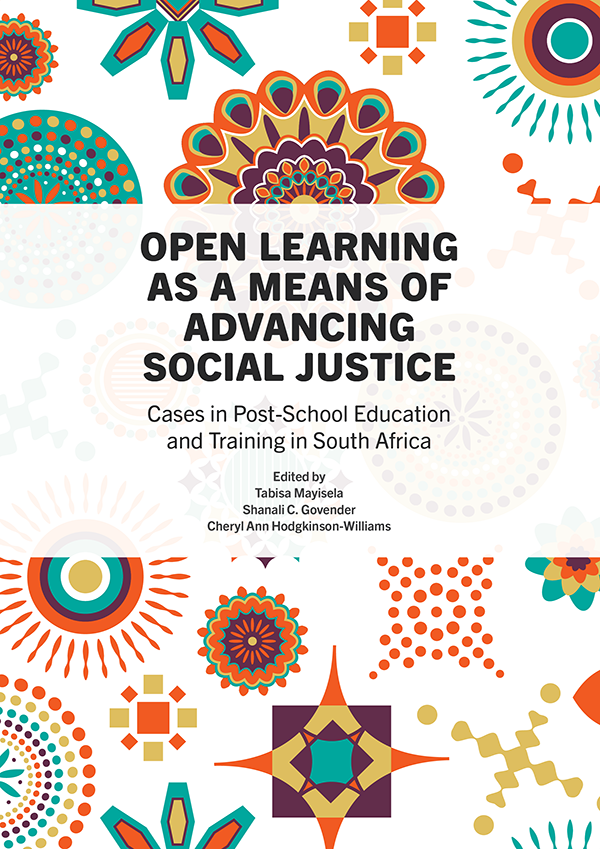
Tor Halvorsen, Hilde Ibsen, Henri-Count Evans, & Sharon Penderis (2017), Knowledge for Justice: Critical Perspectives from Southern African-Nordic Research Partnerships. African Minds. https://www.africanminds.co.za/knowledge-for-justice-critical-perspectives-from-southern-african-nordic-research-partnerships/
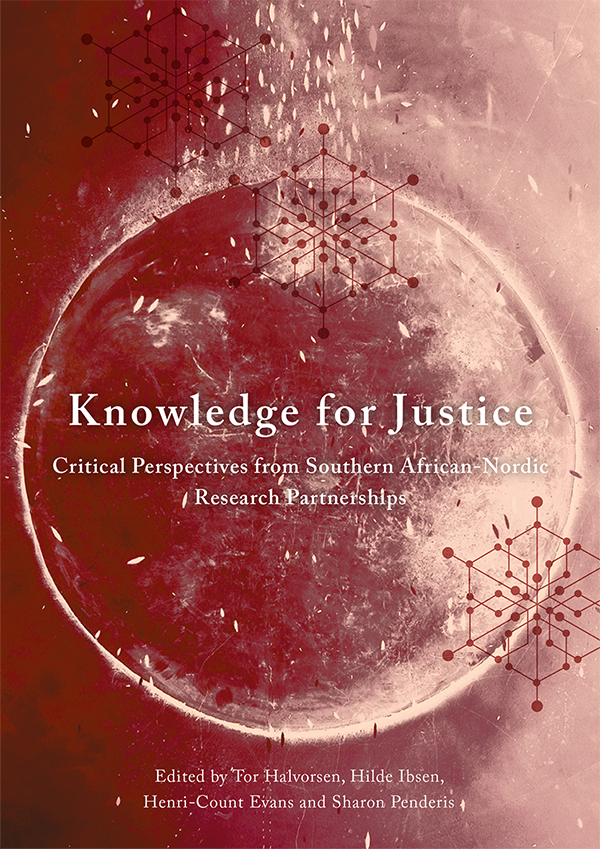
Evode Mukama and Laurent Mkusi, eds. (2019) Ubushakashatsi mu Bumenyi Nyamuntu n’Imibanire y’Abantu. African Minds. https://www.africanminds.co.za/ubushakashatsi-mu-bumenyi-nyamuntu-nimibanire-yabantu/
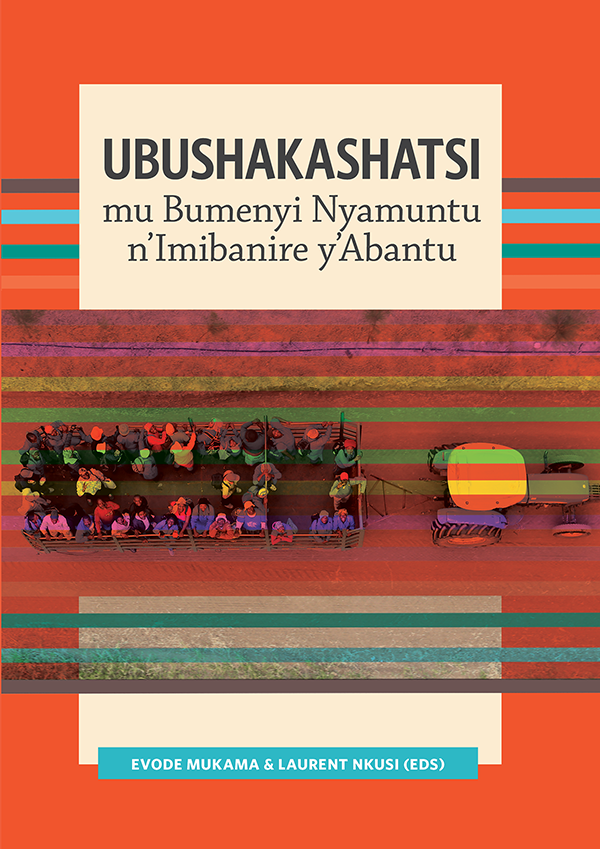
Sandra Iturrieta, ed. (2021) Vivir en tiempos convulsionados: reflexiones sociocríticas para propuestas de intervención social. ariadna ediciones. http://ariadnaediciones.cl/index.php/186-vivir-en-tiempos-convulsionados-reflexiones-sociocriticas-para-propuestas-de-intervencion-social
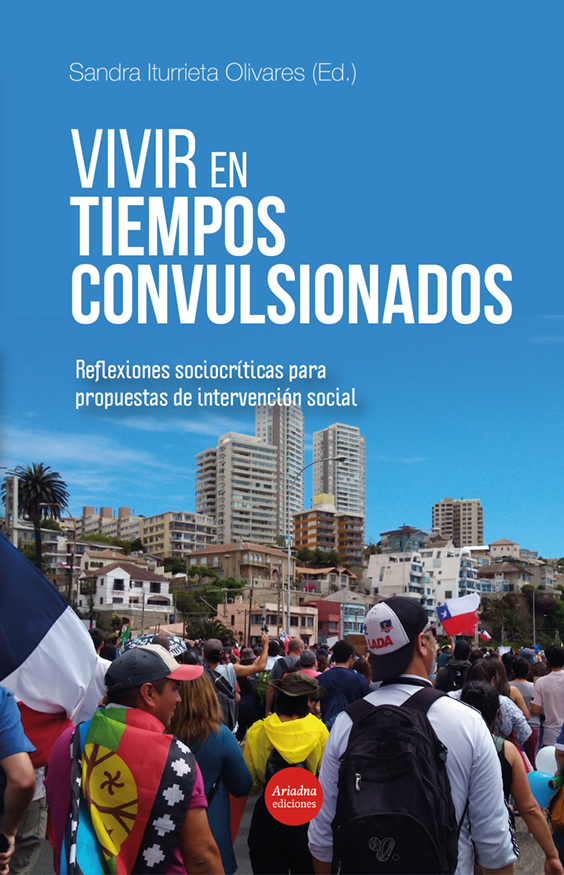
Søren Rasmussen (2020), ‘Anarchival Scripts’, Capacious: Journal for Emerging Affect Inquiry. https://doi.org/10.22387/CAP2020.45
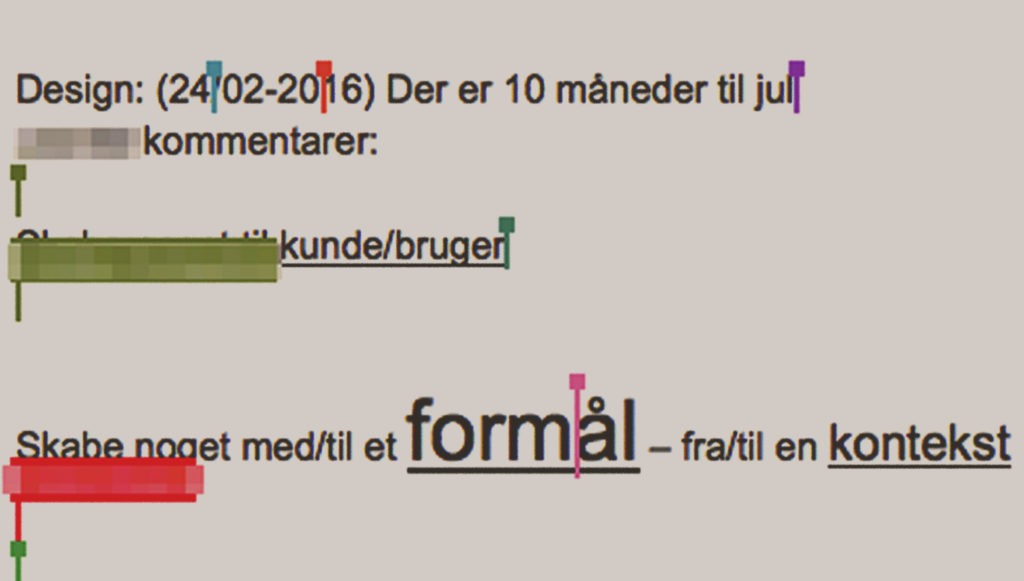

Monica L. Wendel, Trinidad Jackson, C. Monique Ingram, Tasha Golden, Billie F. Castle, Nida M. Ali, & Ryan Combs (2019), ‘Yet We Live, Strive, and Succeed: Using Photovoice to Understand Community Members’ Experiences of Justice, Safety, Hope, and Racial Equity’, Collaborations: A Journal of Community-based Research and Practice, 2(1), 9. http://doi.org/10.33596/coll.23
Vera Eccarius-Kelly & Alison Schaeffing (2022), ‘Digital Storytelling And Visual Representations: Refugees Disrupt Stereotypical Narratives’, Collaborations: A Journal of Community-based Research and Practice, 5(1), 7http://doi.org/10.33596/coll.88
Decolonise University of Kent Collective (2020), Towards Decolonising the University: A Kaleidoscope for Empowered Action. Counterpress. https://counterpress.org.uk/publications/towards-decolonising-the-university/
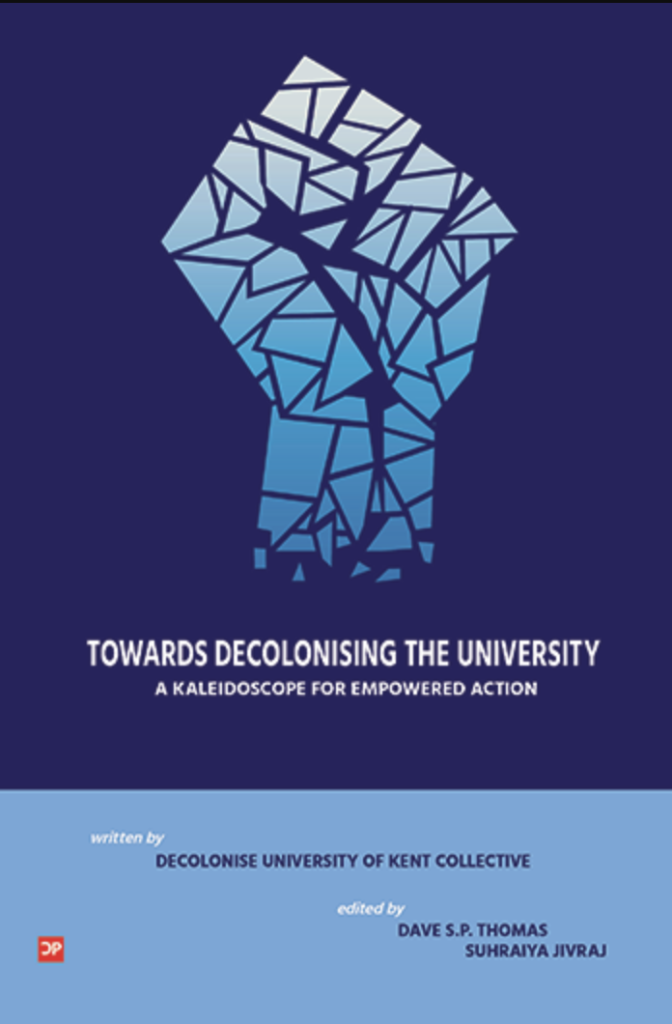
Autistici/Inventati (2017), +KAOS: Ten Years of Hacking and Media Activism. Amsterdam: Institute of Network Cultures. https://networkcultures.org/blog/publication/kaos-ten-years-of-hacking-and-media-activism/
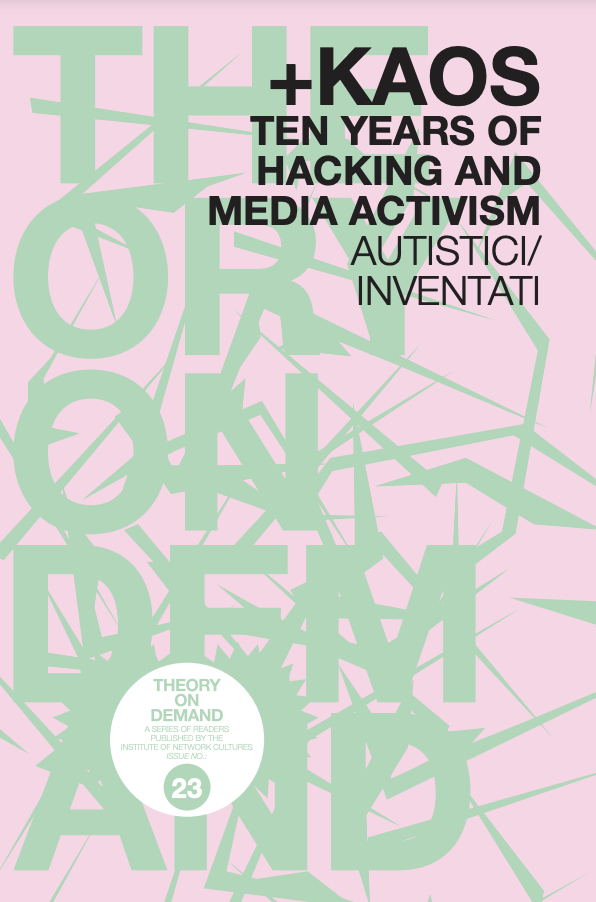
Yiannis Colakides, Marc Garrett, & Inte Gloerich, eds. (2019) State Machines: Reflections and Actions at the Edge of Digital Citizenship, Finance, and Art. Amsterdam: Institute of Network Cultures. https://networkcultures.org/blog/publication/state-machines-reflections-and-actions-at-the-edge-of-digital-citizenship-finance-and-art/
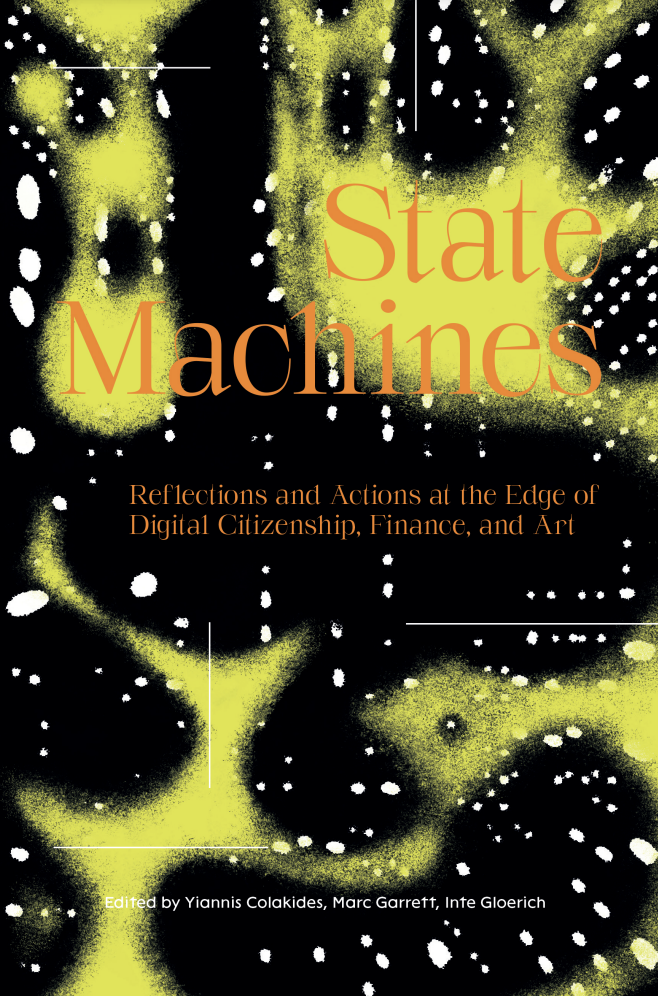
Miyarrka Media (2019), Phone & Spear: A Yuta Anthropology. London: Goldsmiths Press. https://www.gold.ac.uk/goldsmiths-press/publications/phone-and-spear-/
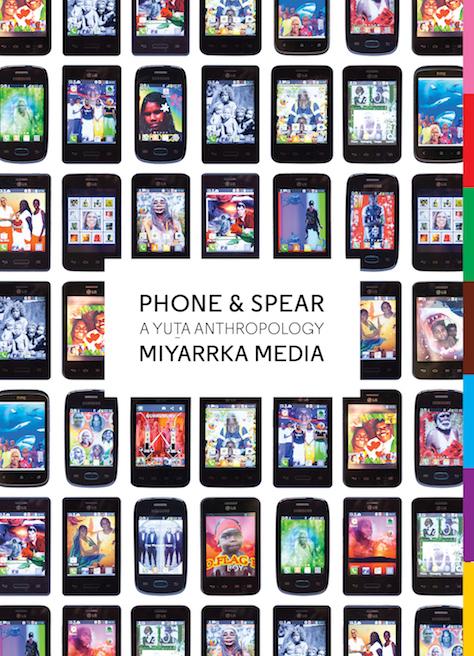
Precarity Lab (2020), Technoprecarious. London: Goldsmiths Press. https://www.gold.ac.uk/goldsmiths-press/publications/technoprecarious-/
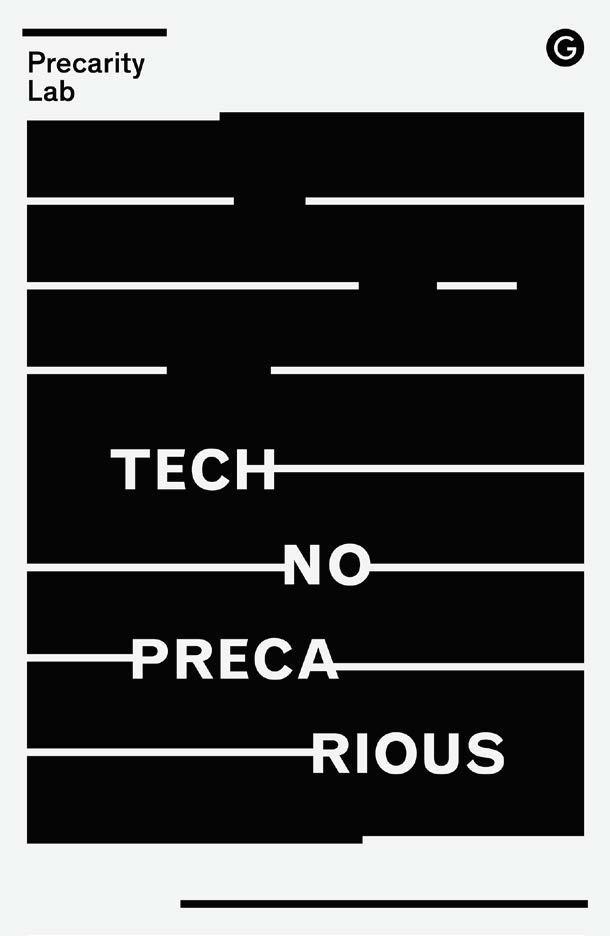
Florence Piron, Samuel Regulus, & Marie Sophie Dibounje Madiba, eds. (2016), Justice cognitive, libre accès et savoirs locaux. Pour une science ouverte juste, au service du développement local durable. Éditions science et bien commun. https://scienceetbiencommun.pressbooks.pub/justicecognitive1/
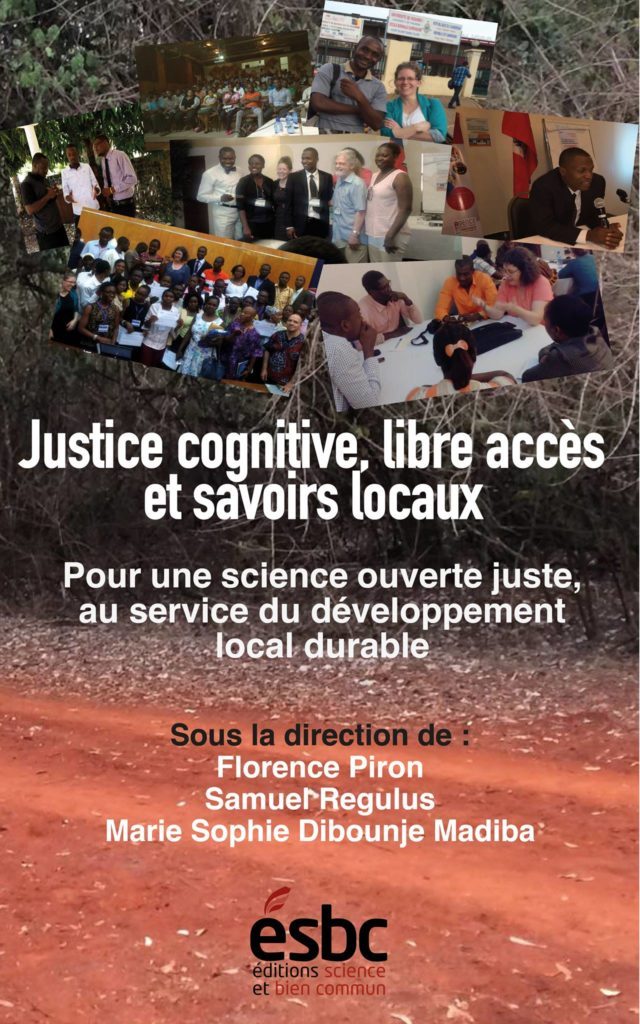

Anders la Cour, Janus Hecht, & Maria Kirstine Stilling (2016), ‘A vanishing act: The magical technologies of invisibility in care work’. ephemera: theory & politics in organization, 16(2): 77-96. http://www.ephemerajournal.org/contribution/vanishing-act-magical-technologies-invisibility-care-work
Franke Mastrangelo (2020), ‘Mediating resistance: Digital immaterial labor, neoliberal subjectivities, and the struggle for immigrant justice’, ephemera: theory & politics in organization, 20(4). http://www.ephemerajournal.org/contribution/mediating-resistance-digital-immaterial-labor-neoliberal-subjectivities-and-struggle
Raminder Kaur (2022), ‘The Spark that Ignites: Catalytic Signifiers for a Transformative and Performative Planetary Humanism’, darkmatter, 16. https://darkmatter-hub.pubpub.org/pub/i9rn557n/release/1
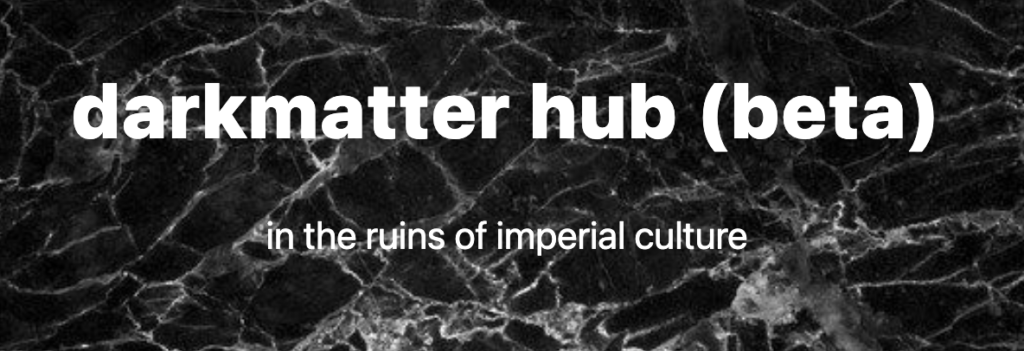
Thao Phan & Scott Wark (2021), ‘What personalisation can do for you! Or: how to do racial discrimination without ‘race’’, Culture Machine: generating research in culture and theory, 20. https://culturemachine.net/vol-20-machine-intelligences/what-personalisation-can-do-for-you-or-how-to-do-racial-discrimination-without-race-thao-phan-scott-wark/

Peter Snowdon (2014), ‘The Revolution Will be Uploaded: Vernacular Video and the Arab Spring’, Culture Unbound: Journal of Current Cultural Research, 6(2): 401-429. https://doi.org/10.3384/cu.2000.1525.146401
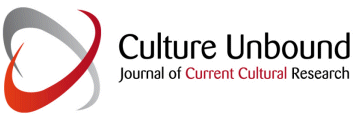
Lawrence R. Frey, Joshua S. Hanan. Critical Rhetoric| Toward Social Justice Activism Critical Rhetoric Scholarship. https://ijoc.org/index.php/ijoc/article/view/8670/2965
Brooke Foucault Welles, Sarah J. Jackson. The Battle for #Baltimore: Networked Counterpublics and the Contested Framing of Urban Unrest. https://ijoc.org/index.php/ijoc/article/view/8043/2363
Mohamed Ben Moussa, Sanaa Benmessaoud, Aziz Doua. Internet Memes as “Tactical” Social Action: A Multimodal Critical Discourse Analysis Approach https://ijoc.org/index.php/ijoc/article/view/14534/3282
Michael Dokyum Kim. Advocating “Refugees” for Social Justice: Questioning Victimhood and Voice in NGOs’ Use of Twitter. https://ijoc.org/index.php/ijoc/article/view/17116/3673
Isabelle A. Zaugg, Anushah Hossain, Brendan Molloy. Digitally-disadvantaged languages. https://policyreview.info/glossary/digitally-disadvantaged-languages
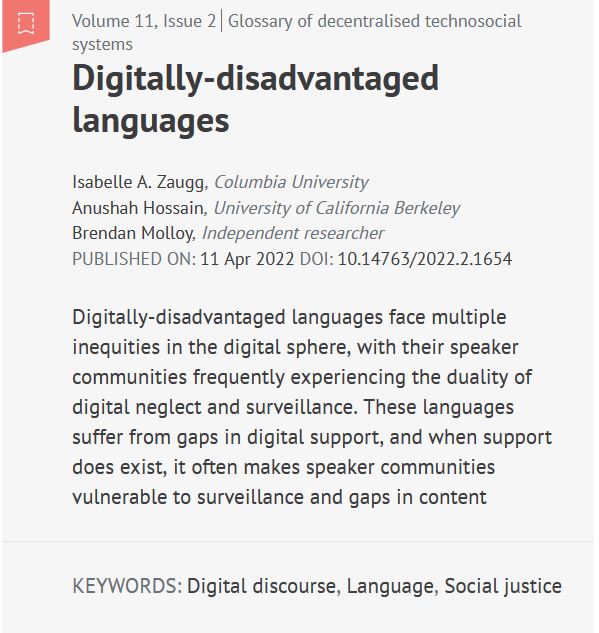
Aisha P.L. Kadiri. Data and Afrofuturism: an emancipated subject? https://policyreview.info/articles/analysis/data-and-afrofuturism-emancipated-subject
Hagit Keysar, Elizabeth Calderón Lüning, Andreas Unteidig. Prototypes as Agents of Transition: The case of DIY Wireless Technology for advancing Community Digital Sovereignty. http://peerproduction.net/issues/issue-15-transition/peer-reviewed-papers/prototypes-as-agents-of-transition/
Pablo Piquinela and Gonzalo Correa. Commons infrastructures: Collaborative design of a political tent as cosmogram.
http://peerproduction.net/issues/issue-14-infrastructuring-the-commons-today-when-sts-meets-ict/peer-reviewed-papers/commons-infrastructures-collaborative-design-of-a-political-tent-as-cosmogram/
Elia Apostolopoulou, Dimitrios Bormpoudakis, Alexandros Chatzipavlidis, and others. Radical social innovations and the spatialities of grassroots activism: navigating pathways for tackling inequality and reinventing the commons.https://journals.librarypublishing.arizona.edu/jpe/article/id/2292/
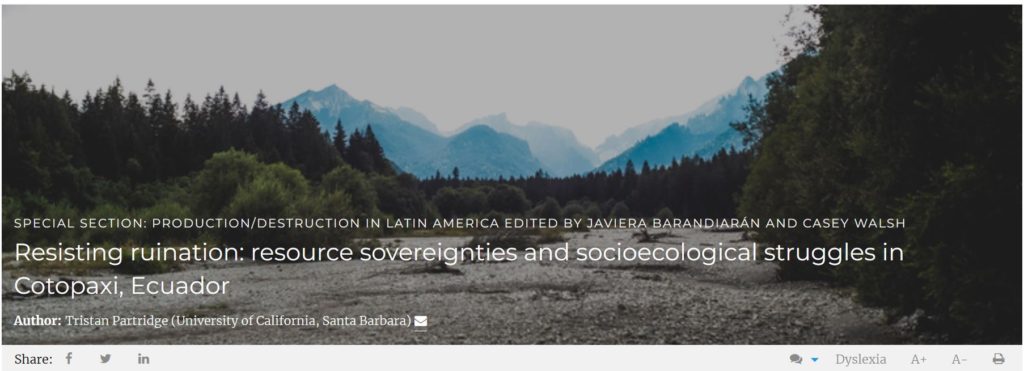
T. Partridge. Resisting ruination: resource sovereignties and socioecological struggles in Cotopaxi, Ecuador. https://journals.librarypublishing.arizona.edu/jpe/article/id/2025
Laura Doak (2021). Militant Women and ‘National’ Community: The Execution of Isabel Alison and Marion Harvie, 1681. https://northernrenaissance.org/militant-women-and-national-community-the-execution-of-isabel-alison-and-marion-harvie-1681
E. Gabriella Coleman and Christopher M. Kelty (eds), limn, Issue 8: Hacks, Leaks, and Breaches. https://limn.it/issues/hacks-leaks-and-breaches/
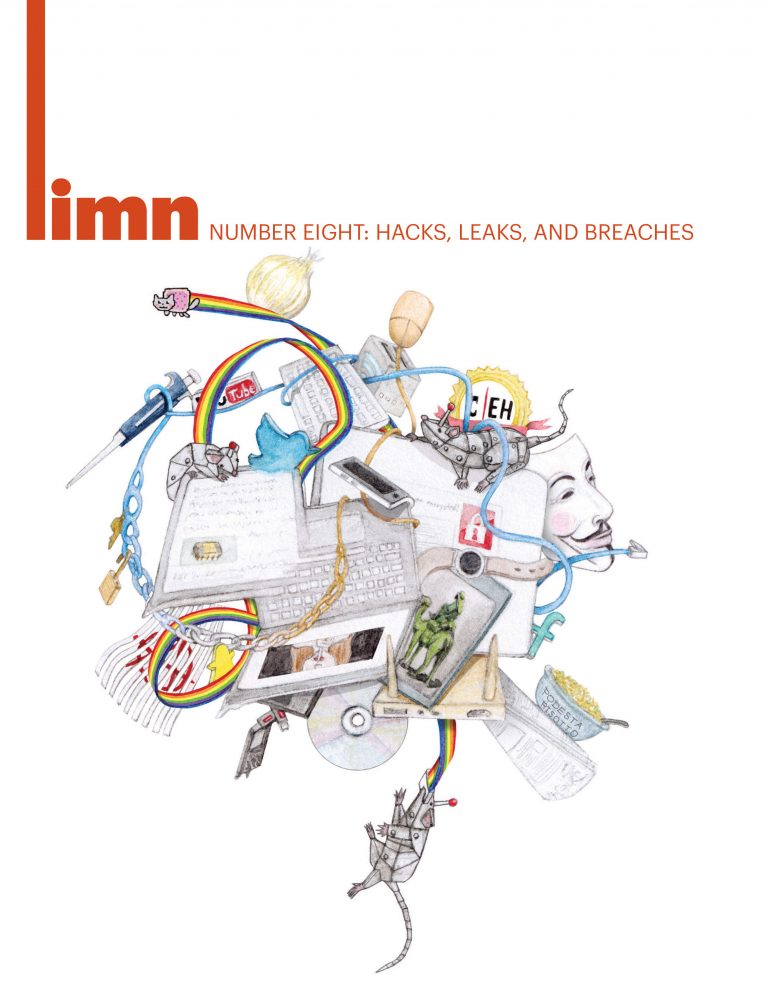
Christopher T. Green. Sonic Refusal: Indigenous Belonging without Soundtrack. https://mast-nemla.org/archive/vol2-no2-2021/sonic_refusal.pdf
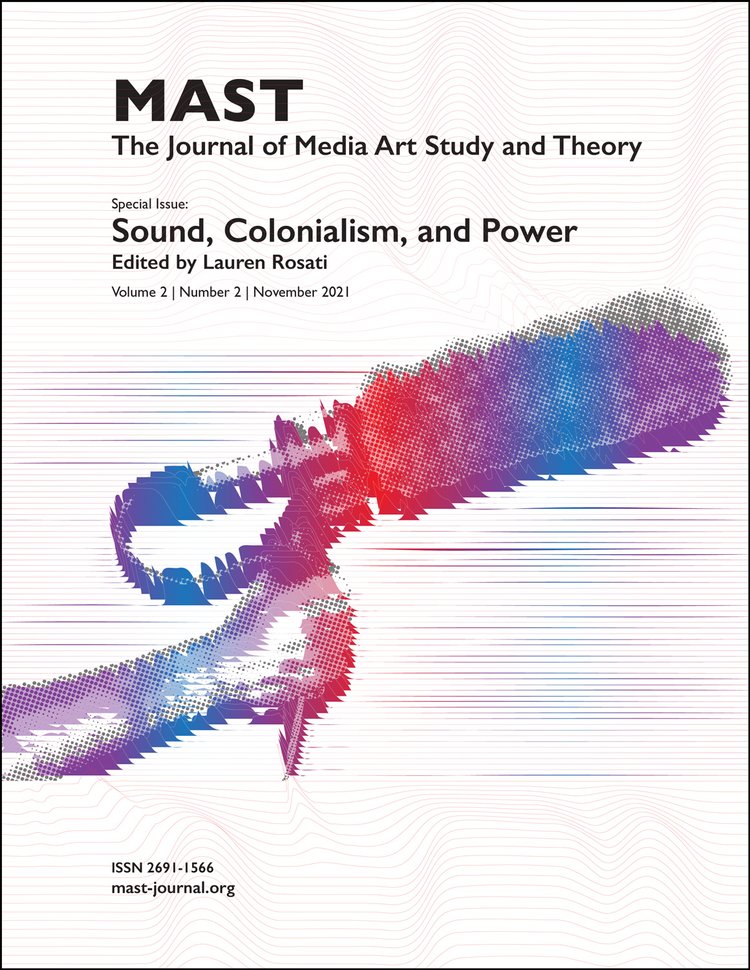
Ksenia Ermoshina and Francesca Musiani. Concealing for Freedom: The Making of Encryption, Secure Messaging, and Digital Liberties. https://www.matteringpress.org/blog/encryption-and-technologies-of-power-in-a-cyber-war-torn-world
Andreas Birkbak and Irina Papazu (eds.). Democratic Situations. https://www.matteringpress.org/books/democratic-situations
Nathalia Brichet. An Anthropology of Common Ground. Awkward Encounters in Heritage Work. https://www.matteringpress.org/books/an-anthropology-of-common-ground
Gerald Raunig, Gene Ray and Ulf Wuggenig (eds). Critique of Creativity: Precarity, Subjectivity and Resistance in the ‘Creative Industries’. https://mayflybooks.org/critique-of-creativity-precarity-subjectivity-and-resistance-in-the-creative-industries/
Michał Kozłowski, Agnieszka Kurant, Jan Sowa, Krystian Szadkowski and Jakub Szreder (eds). Joy Forever: The Political Economy of Social Creativity. https://mayflybooks.org/joy-forever-the-political-economy-of-social-creativity/
Monika Kostera. Organize Ourselves! Inspirations and ideas for self-organization and self-management. https://mayflybooks.org/organize-ourselves-inspirations-and-ideas-for-self-organization-and-self-management/
Wendy Leeds-Hurwitz. The Role of Theory Groups in the Lives of Ideas. https://hms.mediastudies.press/pub/leeds-hurwitz-theory-groups/release/7
Stevphen Shukaitis. Combination Acts. Notes on Collective Practice in the Undercommons. https://www.minorcompositions.info/?p=915
Richard Gilman-Opalsky and Stevphen Shukaitis. Riotous Epistemology. Imaginary Power, Art, and Insurrection. https://www.minorcompositions.info/?p=965
Cornelia Sollfrank (ed.). TThe Beautiful Warriors. Technofeminist Praxis in the Twenty-First Century.https://www.minorcompositions.info/?p=976
Sandra Ruiz and Hypatia Vourloumis. Formless Formation: Vignettes for the End of this World. https://www.minorcompositions.info/?p=1026
in media res theme week. Representations of Xenophobia, Racism, and Nationalism. http://mediacommons.org/imr/content/representations-xenophobia-racism-and-nationalism

Bernd Bösel and Serjoscha Wiemer (eds). Affective Transformations: Politics—Algorithms—Media. https://meson.press/books/affective-transformations/
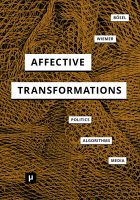
Marcus Burkhardt, Katja Grashöfer, and Mary Shnayien (eds.). Explorations in Digital Cultures. https://meson.press/books/explorations-in-digital-cultures/
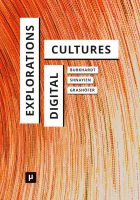
On_Culture Issue 12 (2021). Ambiguity: Conditions, Potentials, Limits. https://www.on-culture.org/journal/issue-12/
Grace Aneiza Ali (ed.). Liminal Spaces: Migration and Women of the Guyanese Diaspora. https://www.openbookpublishers.com/product/1208
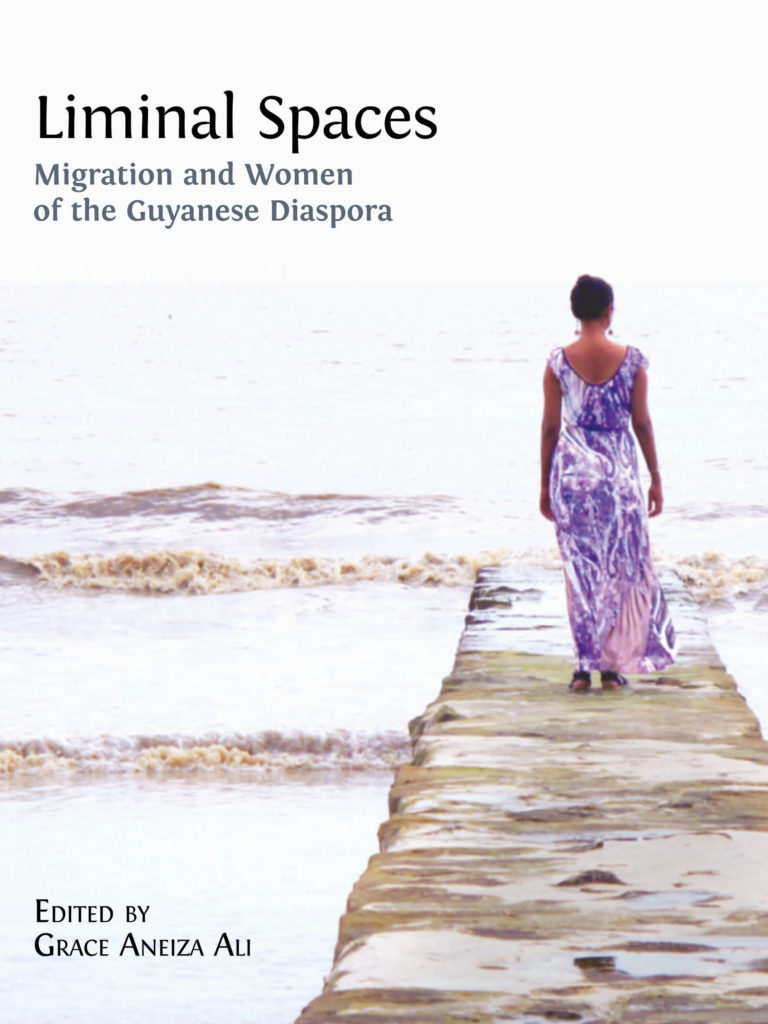
Mark Turin, Claire Wheeler and Eleanor Wilkinson (eds). Oral Literature in the Digital Age: Archiving Orality and Connecting with Communities. https://www.openbookpublishers.com/product/186

Alberto López Cuenca and Renato Bermúdez Dini (eds.). Más allá del derecho de autor: Otros términos para debatir la propiedad intellectual. http://www.openhumanitiespress.org/books/titles/mas-alla-del-derecho-de-autor/
Bill Balaskas and Carolina Rito (eds.). Fabricating Publics: The Dissemination of Culture in the Post-truth Era. http://www.openhumanitiespress.org/books/titles/fabricating-publics/
Bernard Stiegler and the Internation Collective (eds). Daniel Ross (ed. & transl.). Bifurcate: There Is No Alternative. http://www.openhumanitiespress.org/books/titles/bifurcate/
Damian Owen-Board. After the Trojan Horses. http://photomediationsmachine.net/2019/04/10/after-the-trojan-horses/
Gretel Van Wieren, Todd Shaw, Beronda Montgomery, and others. Public Philosophy Journal, Vol. 4, No. 2 (2022). Radical Humility. A Forum Discussion for PPJ & Essays on Ordinary Acts. https://pubhub.lib.msu.edu/projects/radhumforum
Jaime del Val (2022), Ontohackers: Radical Movement Philosophy in the Age of Algorithms. Punctum Books. https://punctumbooks.com/titles/ontohackers-radical-movement-philosophy-in-the-age-of-algorithms/
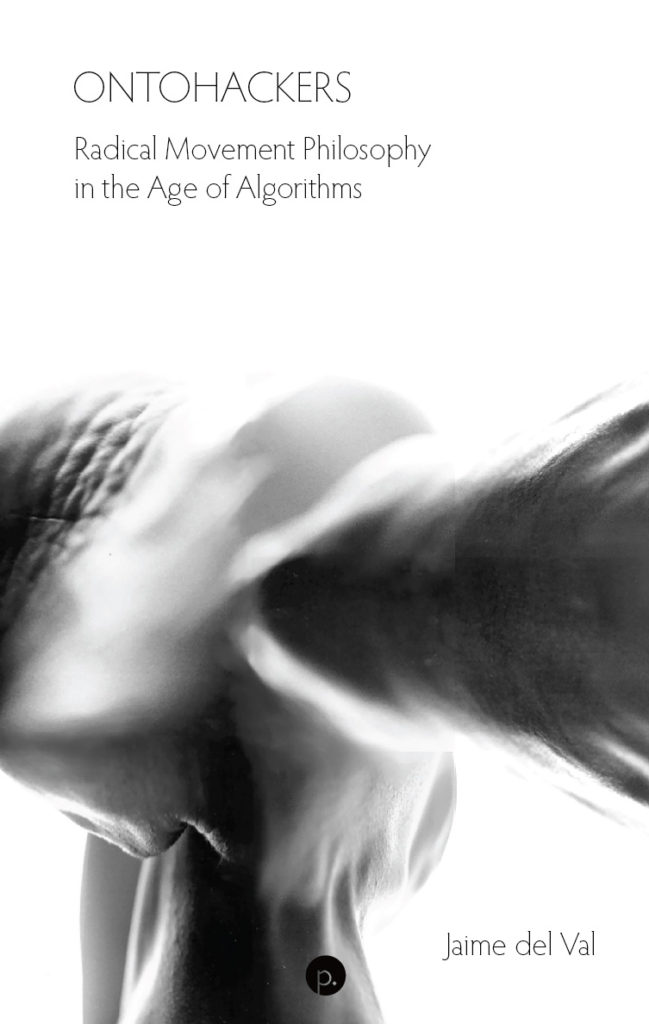
Stephanie Polsky (2022), The Dark Posthuman: Dehumanization, Technology, and the Atlantic World. Punctum Books. https://punctumbooks.com/titles/the-dark-posthuman-dehumanization-technology-and-the-atlantic-world/
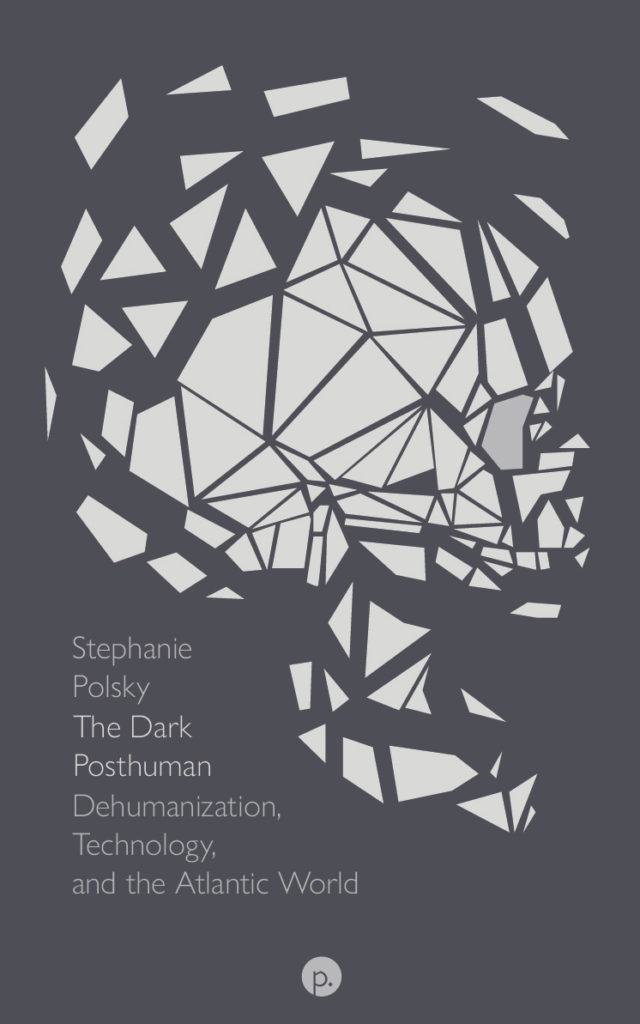
Alexanda Juhasz, ed. (2022), My Phone Lies to Me: Fake News Poetry Workshops As Radical Digital Media Literacy Given the Fact of Fake News. Punctum Books. https://punctumbooks.com/titles/my-phone-lies-to-me-fake-news-poetry-workshops-as-radical-digital-media-literacy-given-the-fact-of-fake-news/
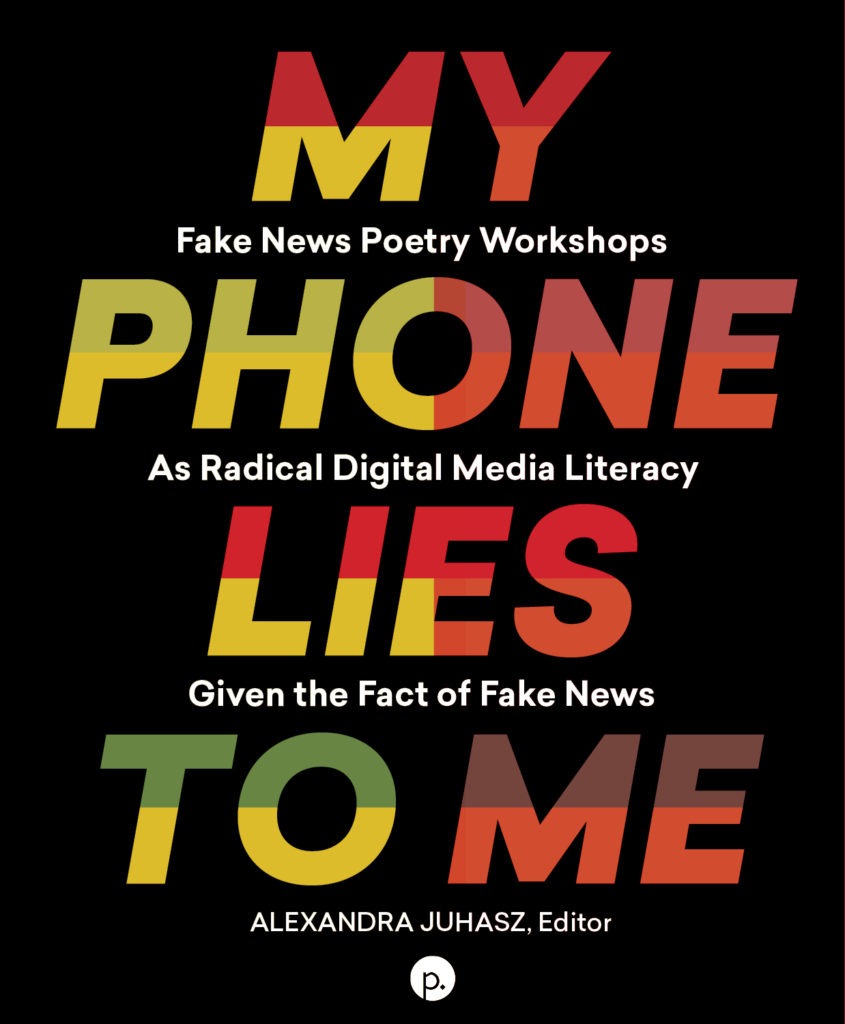
Martin Paul Eve (2021), Warez: The Infrastructure and Aesthetics of Piracy. Punctum Books. https://punctumbooks.com/titles/warez-the-infrastructure-and-aesthetics-of-piracy/
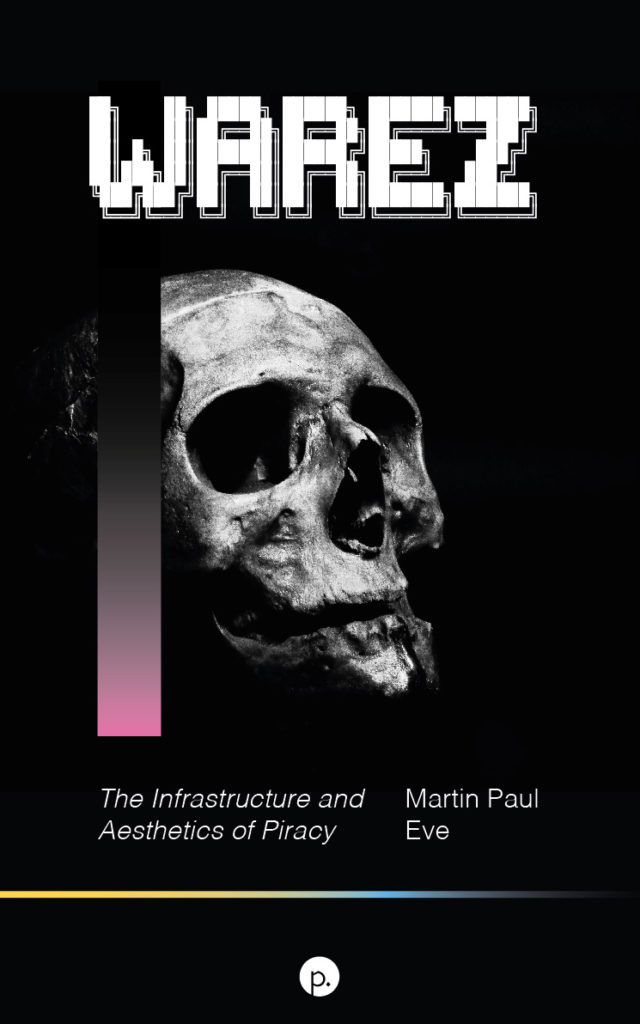
Alfie Bown & Dan Bristow, eds. (2019), Post Memes: Seizing the Memes of Production. Punctum Books. https://punctumbooks.com/titles/post-memes-seizing-the-memes-of-production/
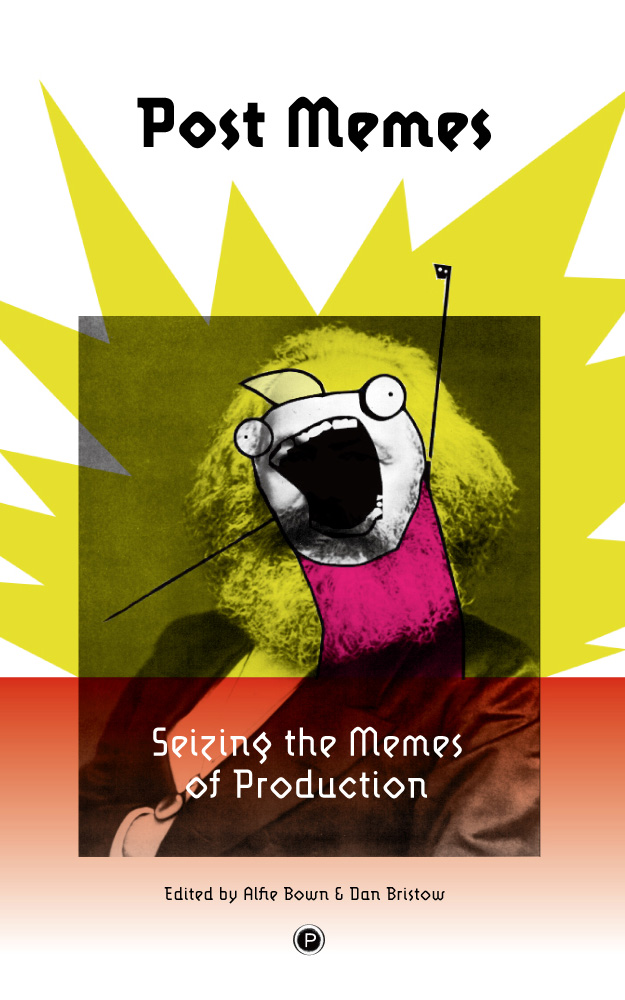
Jeff Shantz (2018), Insurrectionary Infrastructures. Punctum Books. https://punctumbooks.com/titles/insurrectionary-infrastructures/
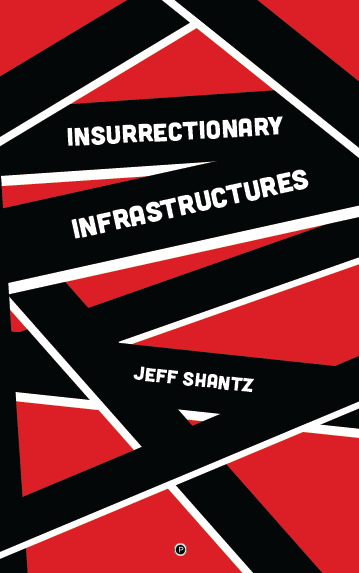
Dorothy Kim & Jesse Stommel, eds. (2018), Disrupting the Digital Humanities. Punctum Books. https://punctumbooks.com/titles/disrupting-the-digital-humanities/
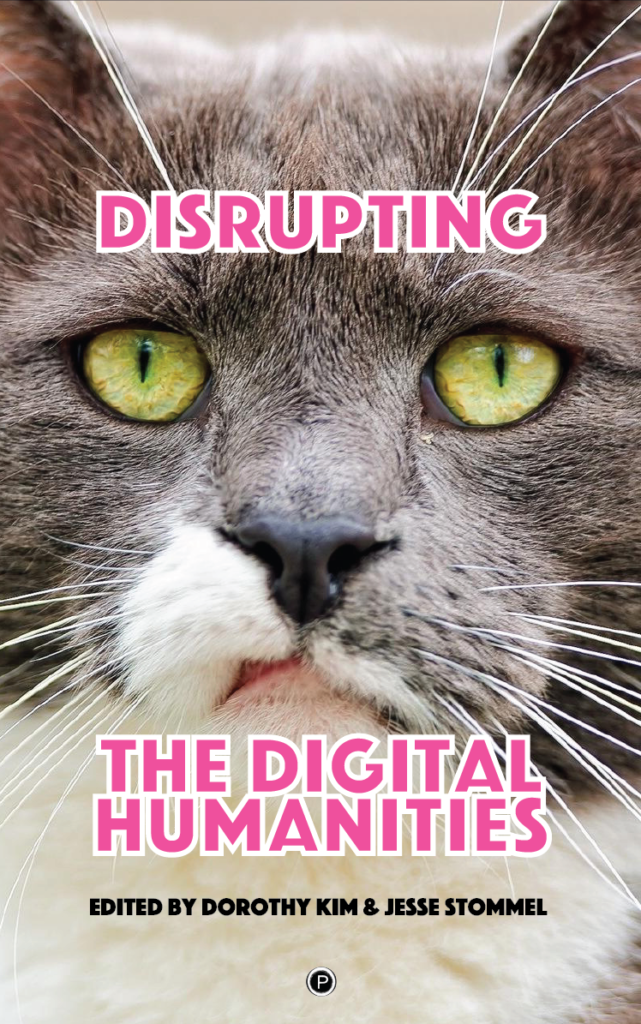
Caroline Bassett, Ryan Burns, Russell Glasson, and Kate O’Riordan, eds. (2015), The Tablet Book. REFRAME Books. https://reframe.sussex.ac.uk/reframebooks/archive2015/the-tablet-book/
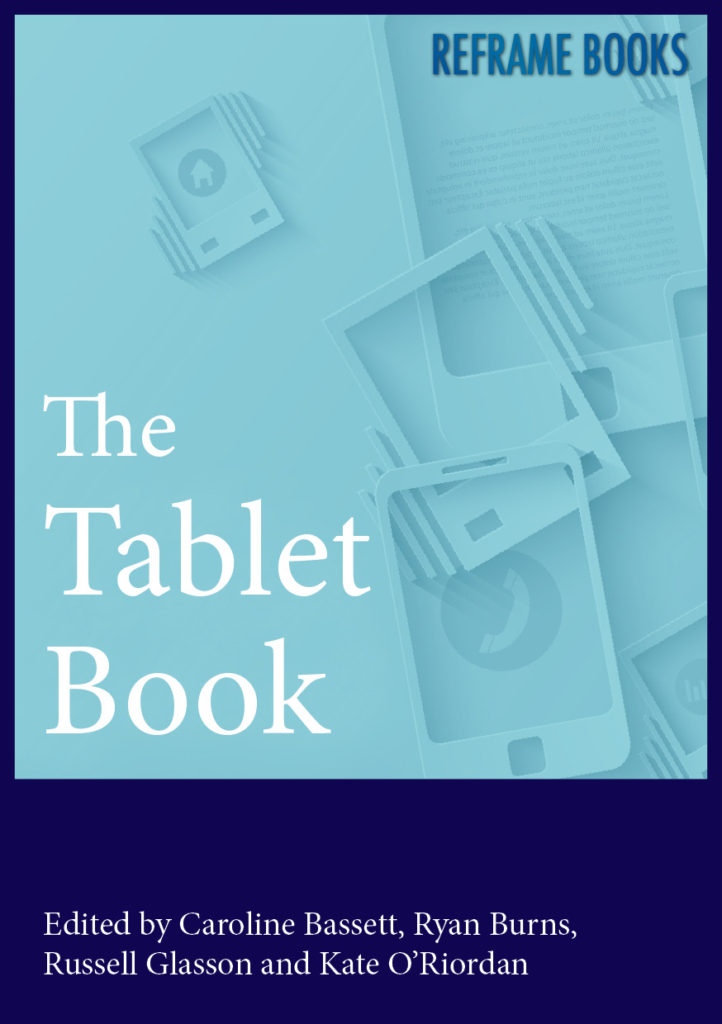
Eleni Maragkou (2021), ‘Subverting the Surveilling Gaze: Counter-Forensics as Social Justice’, Soapbox, 15 March 2021. https://www.soapboxjournal.net/online-articles/subverting-the-surveilling-gaze-counter-forensics-as-social-justice


spheres editorial collective (2019), spheres: journal for digital cultures, #5 Spectres of AI. https://spheres-journal.org/issue/5-spectres-of-ai/
K. A. Wisniewski (2018), Textshop Experiments, Vol. 4: From Digital to Print. http://textshopexperiments.org/textshop04
Ginger Ko (2022), Power On. the operating system. theoperatingsystem.org/oa_library/power-on/
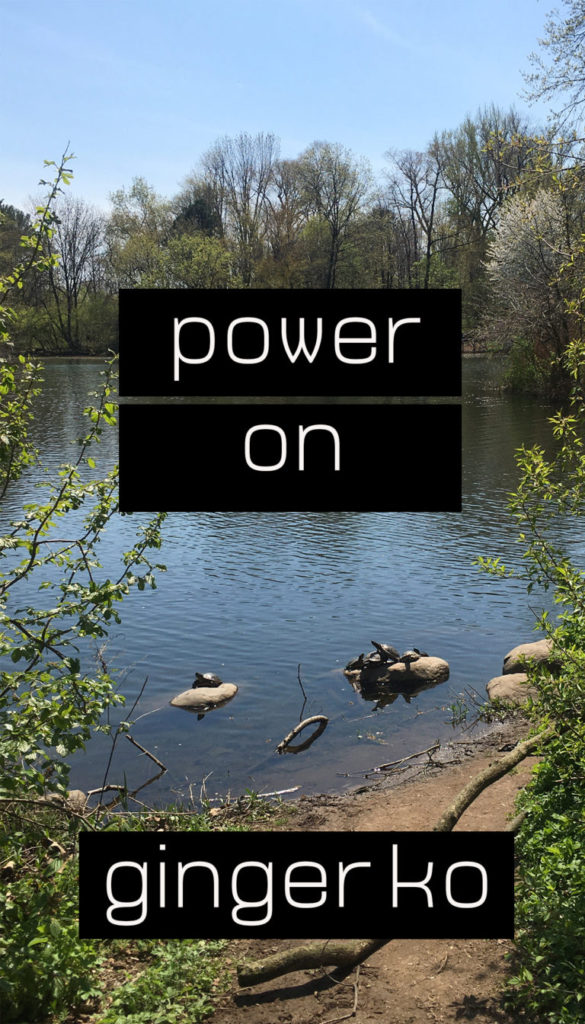
Margaret Rhee (2017), Love, Robot, the operating system. https://www.theoperatingsystem.org/oa_library/love-robot/
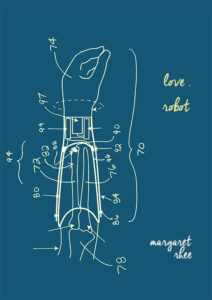

Fredrik Stiernstedt & Anne Kaun (2022), ‘The Prison Media Complex: Labour, Technology and Communication Infrastructures in the Prison System’, triple C: Journal for a Global Sustainable Information Society, 20:1. https://doi.org/10.31269/triplec.v20i1.1270
Emre Canpolat (2021), ‘Smartphones and Exploitation in the Age of Digital Capitalism: Ordinary Aspects of the Transformation of Everyday Life’, triple C: Journal for a Global Sustainable Information Society, 19:2. https://doi.org/10.31269/triplec.v19i2.1269
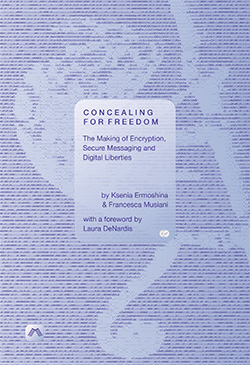
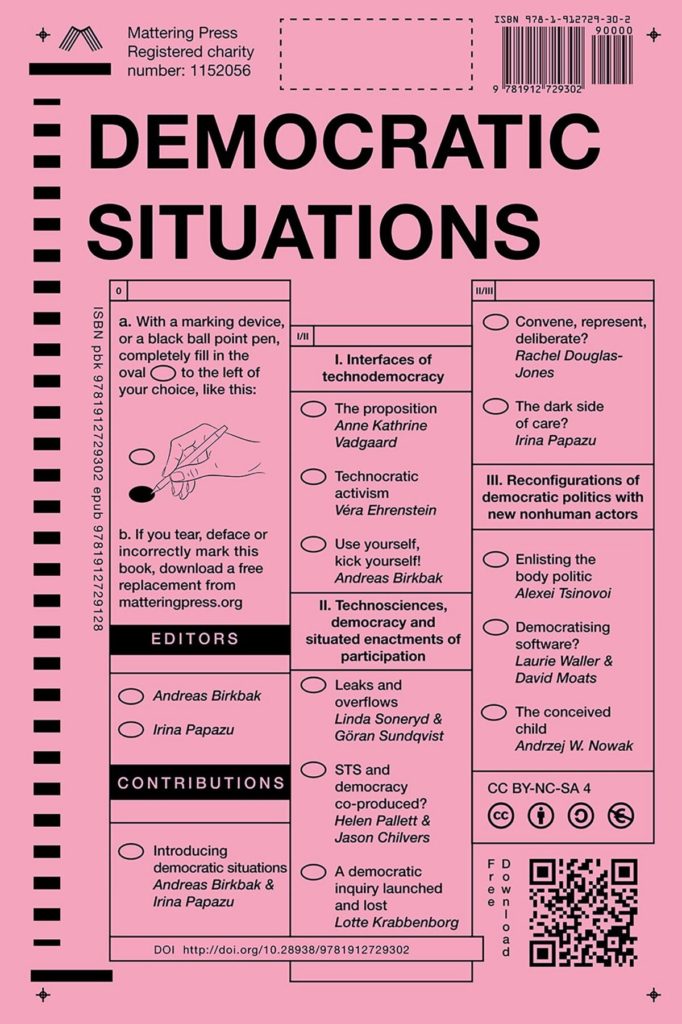
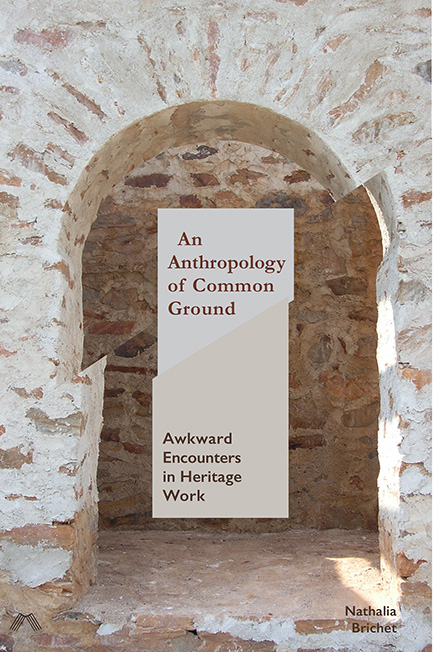
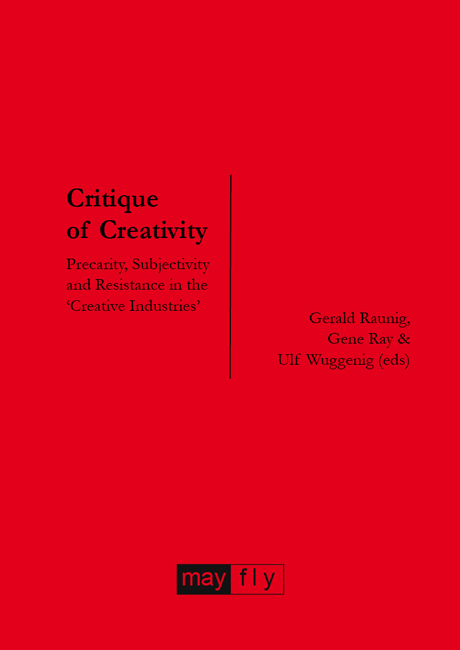
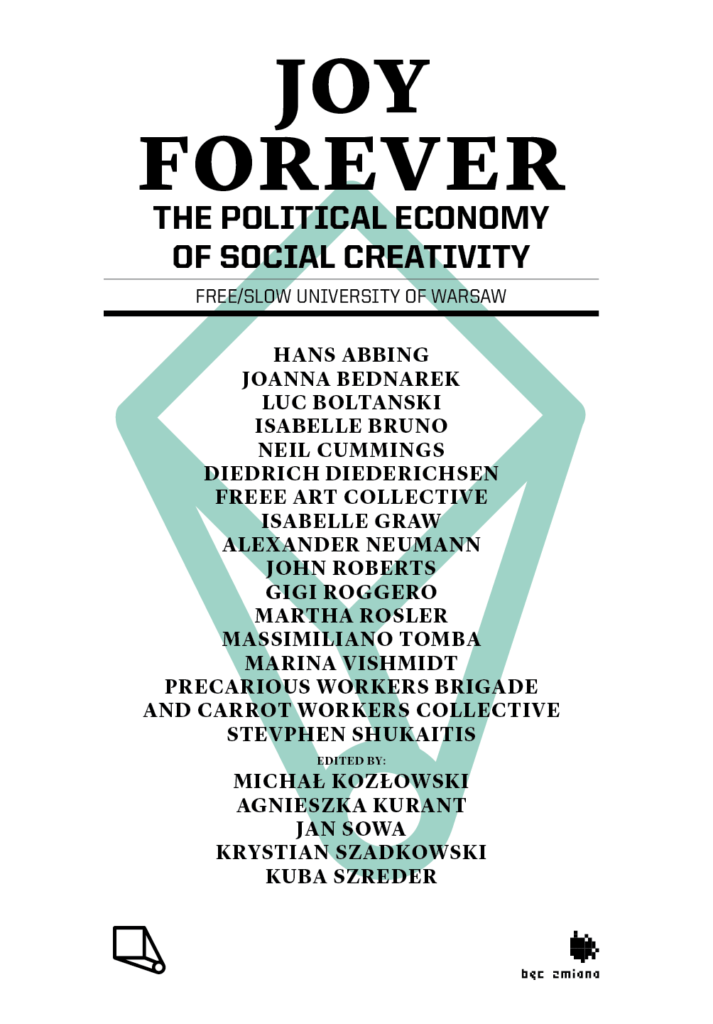
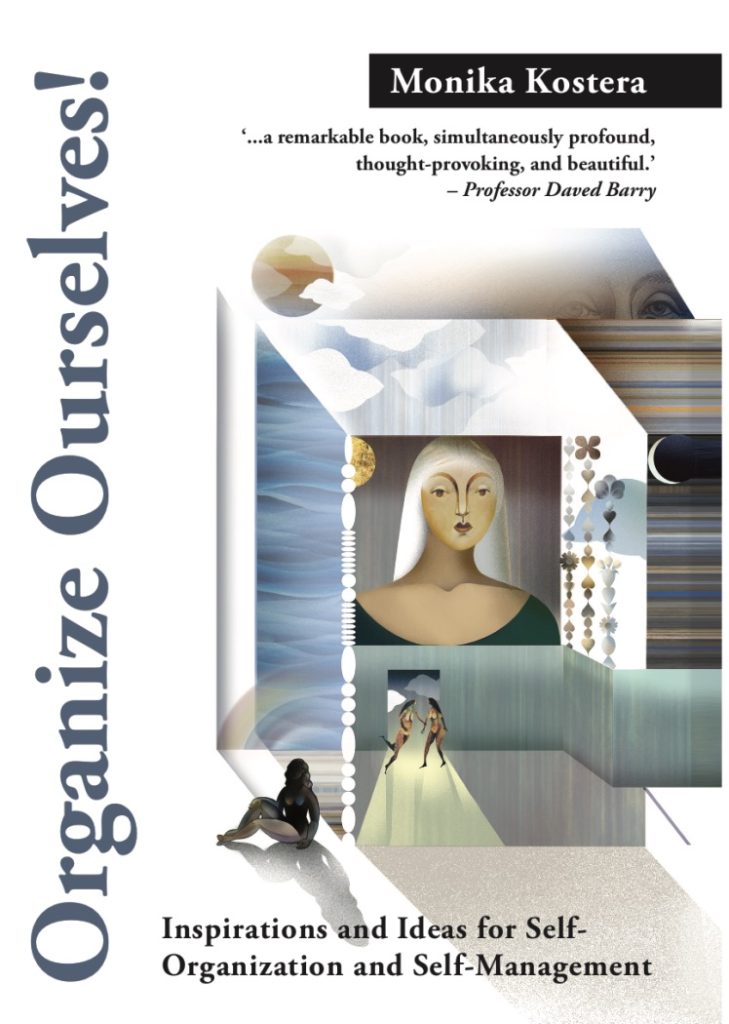
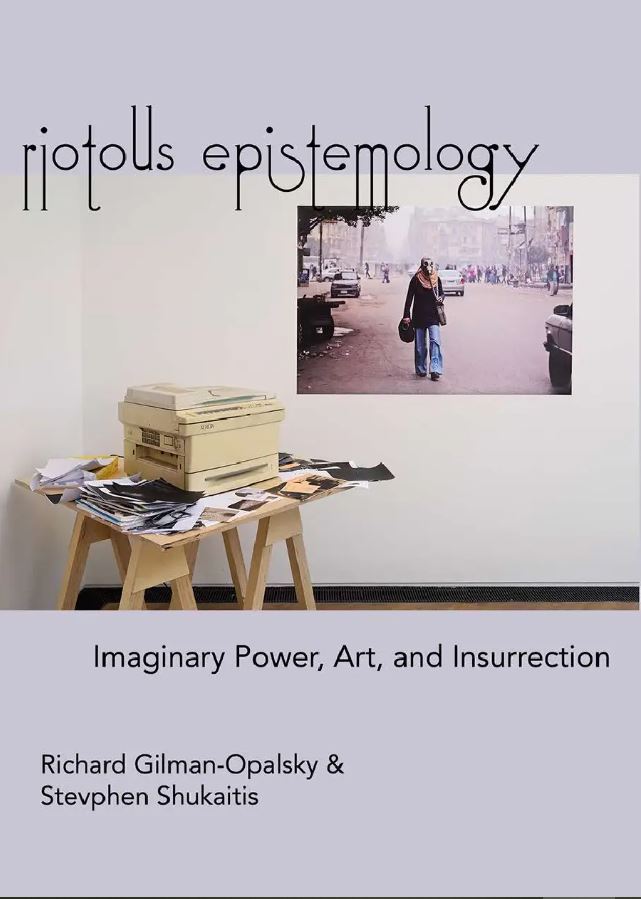


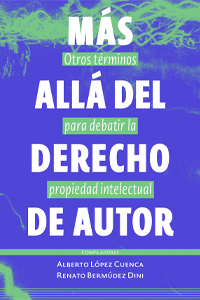
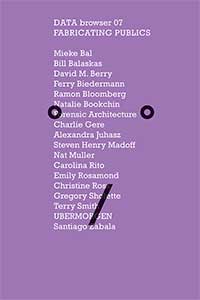
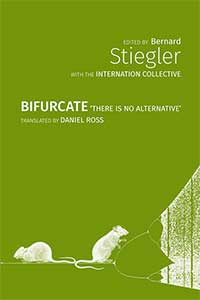

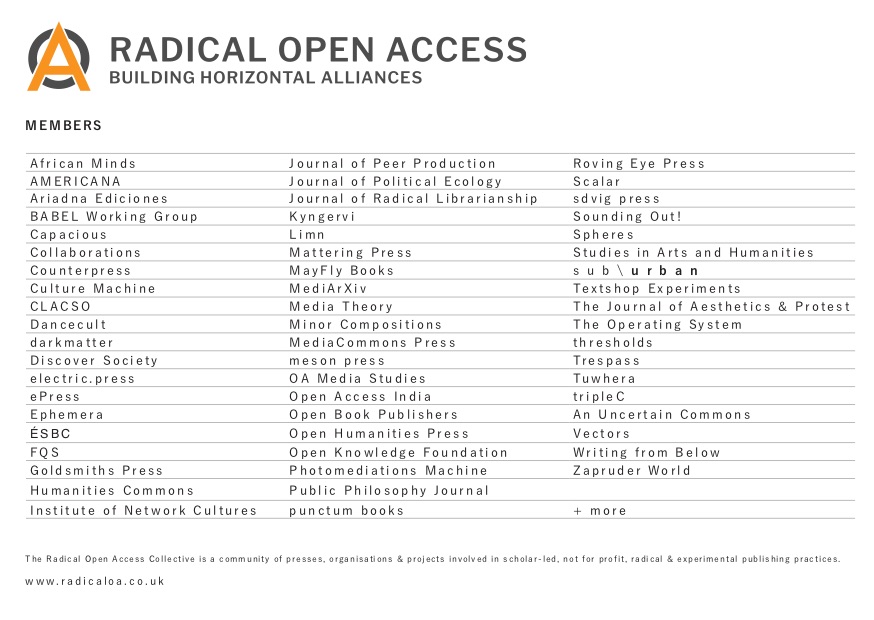
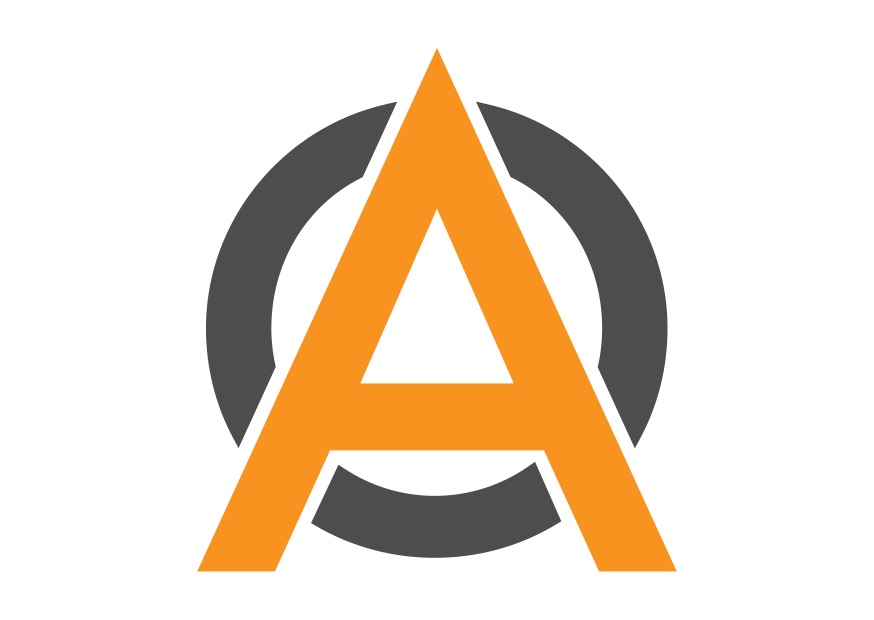
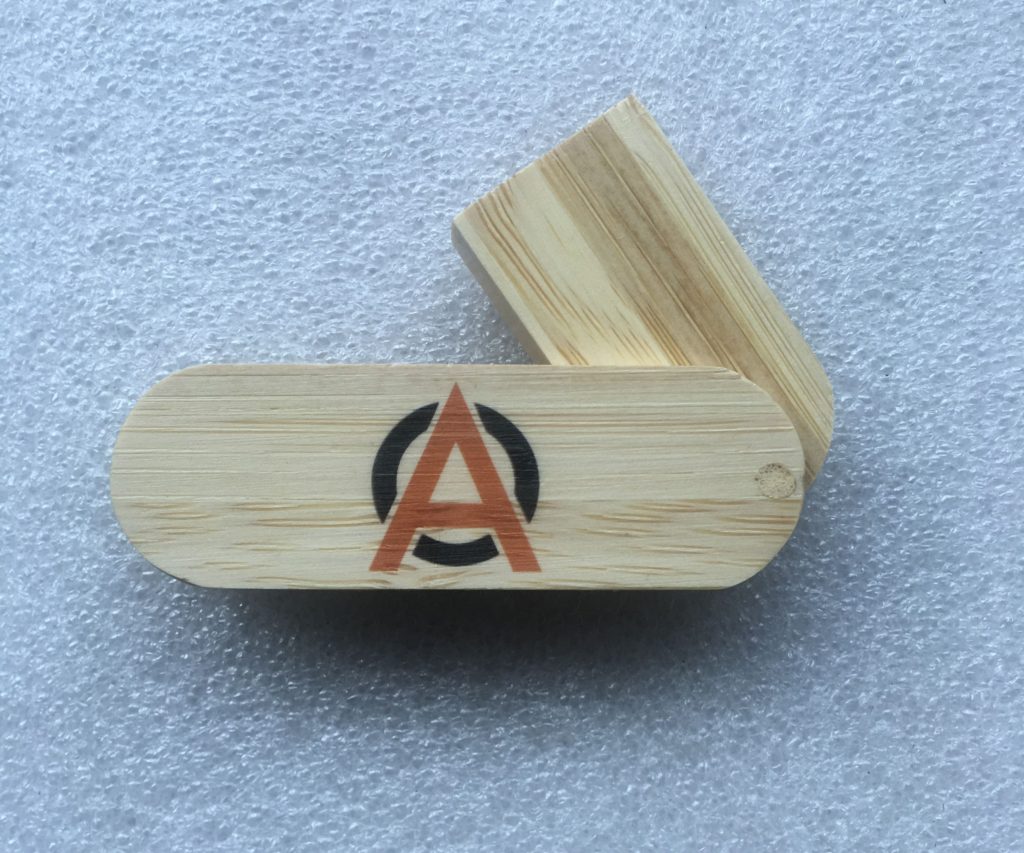

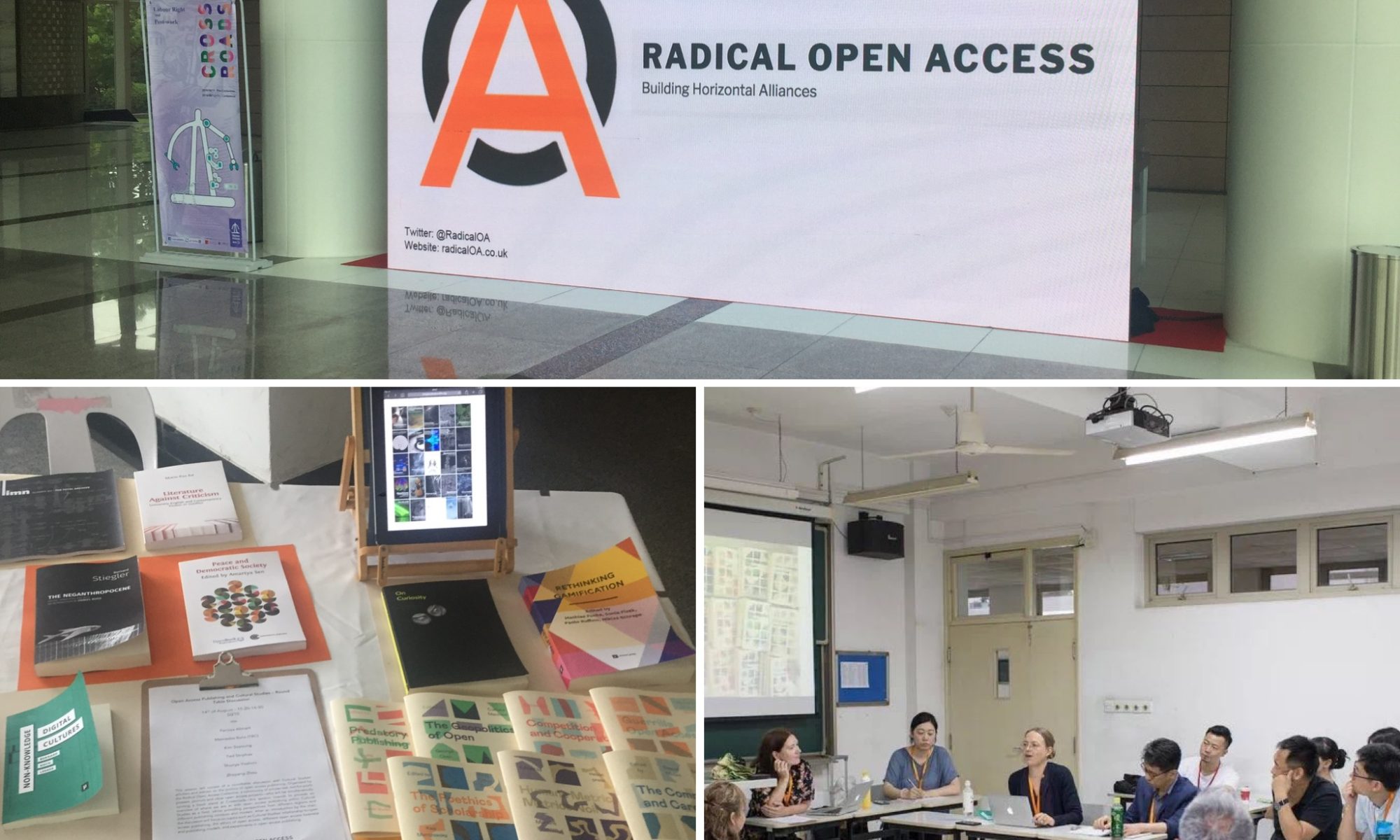
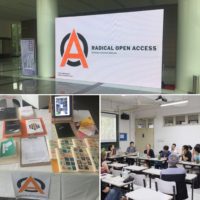
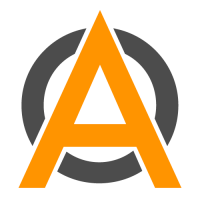

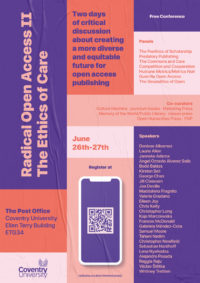 Co-curators: Culture Machine, Mattering Press, Memory of the World/Public Library, meson press, Open Humanities Press, punctum books, POP
Co-curators: Culture Machine, Mattering Press, Memory of the World/Public Library, meson press, Open Humanities Press, punctum books, POP
 The Radical OA Collective reminds us that experimentation with new forms of publishing remains essential, and that open access has always been about more than just improving access to research. As a movement open access has also focused on exploring and promoting not-for-profit, institutional and academic-led publishing alternatives, for example. This is to provide a counterpoint to the commercial legacy system and the vast profits it extracts from our scholarly research and communication interactions. This system has posed specific risks to specialised book publishing in the humanities, to the publication of books by early-career researchers, and to the dissemination of research from those working in the global south or writing in languages other than English; all of which, although essential to sustaining the scholarly conversation, often lack a direct market appeal. To counter this the Radical OA Collective highlights the importance of making publishing more diverse, equitable, and open to change, where it wants to ensure that new and underrepresented cultures of knowledge are able to have a voice. Members of the collective therefore work together to champion the variety of alternative models for scholarly communication that currently exist, and the collective is keen to build alliances with other initiatives interested in building a collaborative and non-competitive publishing ecosystem; one which supports a progressive and multi-polar knowledge commons.
The Radical OA Collective reminds us that experimentation with new forms of publishing remains essential, and that open access has always been about more than just improving access to research. As a movement open access has also focused on exploring and promoting not-for-profit, institutional and academic-led publishing alternatives, for example. This is to provide a counterpoint to the commercial legacy system and the vast profits it extracts from our scholarly research and communication interactions. This system has posed specific risks to specialised book publishing in the humanities, to the publication of books by early-career researchers, and to the dissemination of research from those working in the global south or writing in languages other than English; all of which, although essential to sustaining the scholarly conversation, often lack a direct market appeal. To counter this the Radical OA Collective highlights the importance of making publishing more diverse, equitable, and open to change, where it wants to ensure that new and underrepresented cultures of knowledge are able to have a voice. Members of the collective therefore work together to champion the variety of alternative models for scholarly communication that currently exist, and the collective is keen to build alliances with other initiatives interested in building a collaborative and non-competitive publishing ecosystem; one which supports a progressive and multi-polar knowledge commons.
 Image credit:
Image credit:  Image credit:
Image credit: